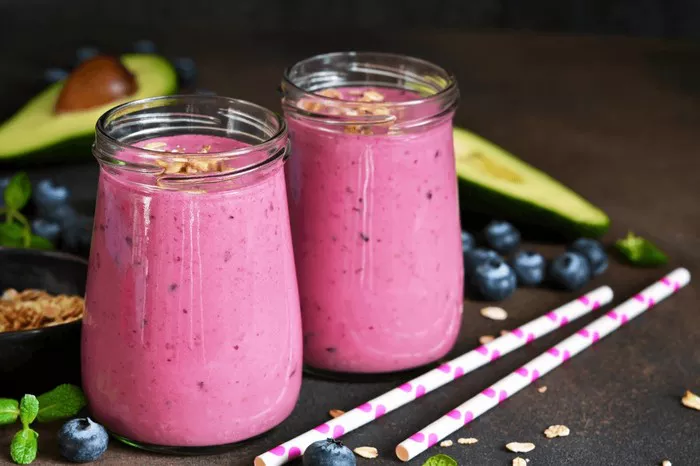In today’s fast-paced world, many of us struggle with low energy levels, leaving us feeling fatigued and drained. While factors such as sleep quality, stress levels, and physical activity play significant roles in energy production, our diet also plays a crucial role in supporting optimal energy levels. In particular, certain vitamins play key roles in energy metabolism and can help boost vitality when incorporated into a balanced and nutritious diet. In this comprehensive guide, we will explore the relationship between vitamins and energy levels, as well as highlight specific vitamins that may help increase energy and combat fatigue.
Understanding Energy Metabolism: The Basics of Cellular Energy Production
Before delving into the role of vitamins in energy production, it’s essential to understand the basics of energy metabolism. Energy metabolism refers to the biochemical processes by which our bodies convert nutrients from food into energy that can be used to fuel cellular activities and sustain life. The primary sources of energy for the body are carbohydrates, fats, and proteins, which are broken down through various metabolic pathways to produce adenosine triphosphate (ATP), the primary energy currency of cells.
The Role of Vitamins in Energy Production
While all vitamins are essential for overall health and well-being, certain vitamins play specific roles in energy metabolism, helping to convert food into usable energy and support the function of various enzymes and coenzymes involved in cellular processes. By ensuring an adequate intake of these vitamins through diet or supplementation, individuals can optimize energy production and combat feelings of fatigue and lethargy.
B Vitamins: The Energy Boosters
B1 (Thiamine): Thiamine plays a crucial role in converting carbohydrates into energy by facilitating the breakdown of glucose and supporting the function of enzymes involved in energy metabolism. Deficiency in thiamine can lead to fatigue, weakness, and impaired cognitive function.
B2 (Riboflavin): Riboflavin is involved in the metabolism of carbohydrates, fats, and proteins, playing a key role in the production of ATP. Adequate intake of riboflavin is essential for maintaining energy levels and supporting overall health and vitality.
B3 (Niacin): Niacin is involved in over 200 enzymatic reactions in the body, including those related to energy metabolism. It helps convert carbohydrates, fats, and proteins into usable energy and is essential for the production of ATP.
B5 (Pantothenic Acid): Pantothenic acid is a component of coenzyme A, which plays a critical role in the breakdown of carbohydrates, fats, and proteins for energy production. Adequate intake of pantothenic acid is necessary for maintaining optimal energy levels and supporting adrenal gland function.
B6 (Pyridoxine): Vitamin B6 is involved in the metabolism of amino acids and the synthesis of neurotransmitters, both of which play important roles in energy production and overall vitality. Deficiency in vitamin B6 can lead to fatigue, irritability, and impaired cognitive function.
B7 (Biotin): Biotin is essential for the metabolism of carbohydrates, fats, and proteins, serving as a cofactor for enzymes involved in energy production. Adequate intake of biotin is necessary for maintaining optimal energy levels and supporting healthy hair, skin, and nails.
B9 (Folate): Folate is involved in DNA synthesis and repair, as well as red blood cell formation, all of which contribute to energy metabolism and overall vitality. Deficiency in folate can lead to fatigue, weakness, and anemia.
B12 (Cobalamin): Vitamin B12 plays a critical role in energy metabolism by facilitating the conversion of carbohydrates and fats into usable energy. It is also involved in the synthesis of DNA and the maintenance of nerve cells, both of which are essential for overall health and vitality.
Other Vitamins That Support Energy Production
Vitamin C: While not directly involved in energy metabolism, vitamin C plays a crucial role in supporting adrenal gland function and the synthesis of carnitine, a compound involved in the transport of fatty acids into the mitochondria for energy production. Adequate intake of vitamin C is necessary for maintaining optimal energy levels and supporting immune function.
Vitamin D: Vitamin D plays a role in energy metabolism by regulating calcium levels in the body, which are essential for muscle contraction and energy production. Adequate intake of vitamin D is necessary for maintaining optimal energy levels and supporting overall health and vitality.
Iron: Iron is a component of hemoglobin, a protein in red blood cells that carries oxygen from the lungs to the rest of the body. Adequate intake of iron is necessary for maintaining optimal energy levels and preventing fatigue and weakness associated with iron deficiency anemia.
Magnesium: Magnesium is involved in over 300 enzymatic reactions in the body, including those related to energy metabolism and muscle function. Adequate intake of magnesium is necessary for maintaining optimal energy levels and supporting overall health and vitality.
Coenzyme Q10 (CoQ10): CoQ10 is a compound that plays a crucial role in energy production within the mitochondria, the powerhouse of the cell. Adequate intake of CoQ10 is necessary for maintaining optimal energy levels and supporting cardiovascular health.
Incorporating Energy-Boosting Foods into Your Diet
To increase your intake of energy-boosting vitamins, consider incorporating the following foods into your diet:
Whole grains: Whole grains such as oats, quinoa, brown rice, and barley are rich in B vitamins, including thiamine, riboflavin, niacin, and pantothenic acid, which support energy metabolism and overall vitality.
Leafy green vegetables: Leafy greens such as spinach, kale, and Swiss chard are rich in folate, vitamin C, and magnesium, all of which play key roles in energy production and cellular function.
Lean protein sources: Lean protein sources such as poultry, fish, eggs, and tofu provide essential amino acids and B vitamins necessary for energy metabolism and muscle function.
Nuts and seeds: Nuts and seeds such as almonds, walnuts, pumpkin seeds, and sunflower seeds are rich in vitamin E, magnesium, and B vitamins, all of which support energy production and overall vitality.
Fruits: Fruits such as citrus fruits, berries, and kiwi are rich in vitamin C and other antioxidants that support adrenal gland function and immune health, both of which are important for maintaining optimal energy levels.
Legumes: Legumes such as lentils, chickpeas, black beans, and kidney beans are rich in folate, iron, and magnesium, all of which play key roles in energy metabolism and overall vitality.
Dairy products: Dairy products such as milk, yogurt, and cheese are excellent sources of calcium, vitamin D, and B vitamins, all of which support energy production and overall health and vitality.
Supplementing with Vitamins for Energy Support
While obtaining vitamins from food sources is ideal, supplementation may be necessary for individuals with specific dietary restrictions, nutrient deficiencies, or increased energy needs. Before starting any supplementation regimen, consult with a healthcare provider or registered dietitian to determine the appropriate dosage and formulation based on your individual needs and health status.
Conclusion: Enhancing Vitality with Nutrient-Rich Foods
In conclusion, vitamins play a crucial role in energy metabolism, supporting the conversion of nutrients from food into usable energy that fuels cellular activities and sustains life. By incorporating energy-boosting foods rich in B vitamins, vitamin C, vitamin D, iron, magnesium, and CoQ10 into your diet, you can optimize energy production and combat feelings of fatigue and lethargy. Remember to prioritize a balanced and nutritious diet, adequate sleep, regular physical activity, and stress management techniques to support overall health and vitality. With the right combination of vitamins and lifestyle practices, you can unlock your full potential and enjoy sustained energy levels to thrive in all aspects of life.
[inline_related_posts title=”You Might Be Interested In” title_align=”left” style=”list” number=”6″ align=”none” ids=”7051,7126,7123″ by=”categories” orderby=”rand” order=”DESC” hide_thumb=”no” thumb_right=”no” views=”no” date=”yes” grid_columns=”2″ post_type=”” tax=””]

































